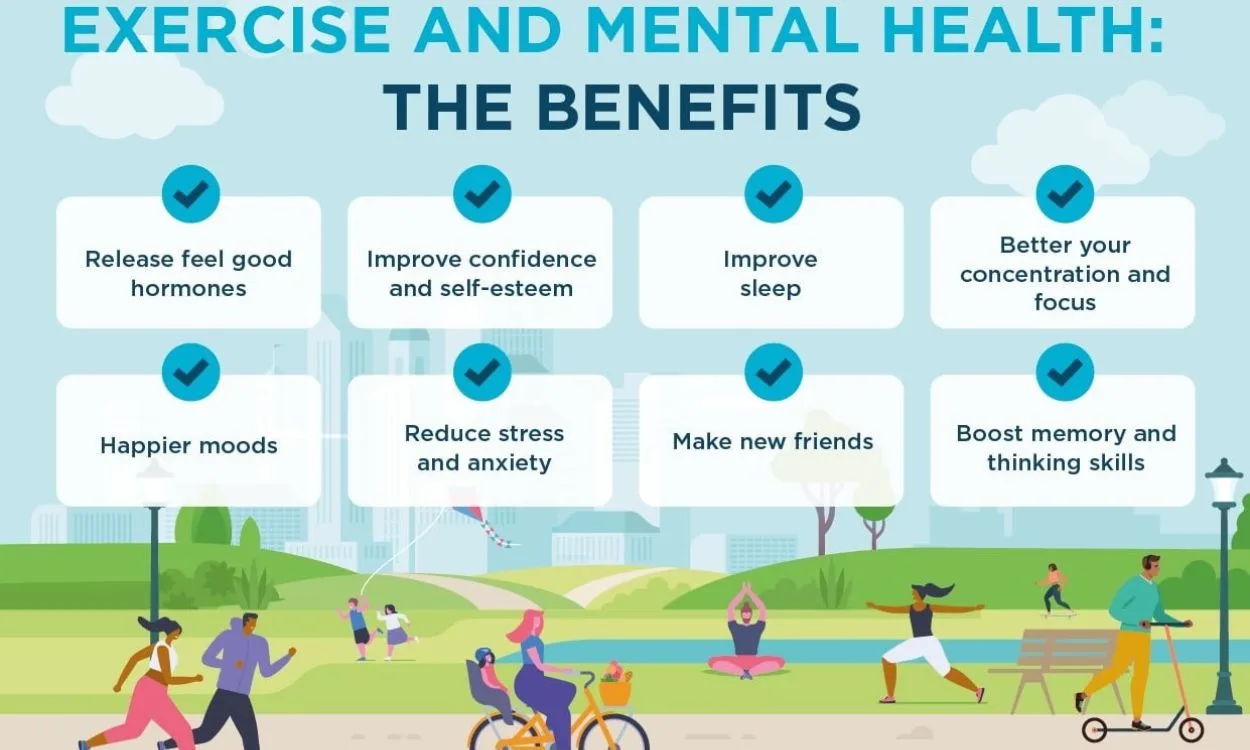How Does Exercise Impact Mental Health?
Exercise is not just beneficial for physical health; it also has a profound impact on our mental well-being. Engaging in regular physical activity has been proven to have numerous positive effects on mental health and can significantly improve overall mood and emotional well-being. Let’s explore how exercise impacts mental health:
- Releases Feel-Good Chemicals: When we exercise, our brain releases endorphins, which are natural chemicals that act as mood elevators. These endorphins are responsible for the feeling of happiness and euphoria commonly known as a “runner’s high.” Regular exercise helps boost the production of endorphins, leading to a more positive outlook and reduced feelings of stress and anxiety.
- Reduces Anxiety and Depression: Exercise has been found to be an effective natural remedy for anxiety and depression. Physical activity stimulates the release of neurotransmitters like serotonin, dopamine, and norepinephrine, which are known to regulate mood and reduce symptoms of depression. Regular exercise can alleviate feelings of sadness, anxiety, and stress, promoting a sense of relaxation and emotional well-being.
- Boosts Self-Confidence: Engaging in regular exercise can improve self-confidence and self-esteem. As we achieve fitness goals and experience physical improvements, our self-image and self-worth improve. Exercise also provides a sense of accomplishment and empowerment, leading to a more positive body image and increased confidence in our abilities.
- Enhances Cognitive Function: Exercise has a positive impact on cognitive function and brain health. Physical activity increases blood flow to the brain, delivering oxygen and nutrients necessary for optimal brain function. Regular exercise has been shown to improve memory, attention, and overall cognitive performance. It can also reduce the risk of cognitive decline and age-related neurodegenerative diseases, such as Alzheimer’s.
- Stress Relief: Exercise is a powerful stress reliever. Physical activity helps to reduce the levels of stress hormones, such as cortisol, and stimulates the production of endorphins, promoting relaxation and a sense of calm. Regular exercise can help manage stress and prevent the negative effects of chronic stress on mental health.
- Improves Sleep: Exercise has a positive impact on sleep quality and can help regulate sleep patterns. Physical activity increases the amount of deep sleep, which is essential for restoring and rejuvenating the body and mind. By promoting better sleep, exercise can reduce symptoms of insomnia and improve overall mental well-being.
- Social Interaction: Many forms of exercise involve social interaction, such as group classes, team sports, or even walking with a friend. Social interaction is vital for mental health, as it helps reduce feelings of loneliness and isolation. Participating in group activities or exercising with others provides opportunities for social connection, support, and a sense of belonging.
In conclusion, exercise has numerous benefits for mental health. It can improve mood, reduce anxiety and depression, boost self-confidence, enhance cognitive function, relieve stress, improve sleep, and provide social interaction. Incorporating regular exercise into your routine can have a significant positive impact on your mental well-being.
If you are ready to take control of your mental and physical health, the Fitpaa app can help you achieve your goals. With personalized fitness plans, nutrition guidance, and real-time support, Fitpaa provides a comprehensive solution for achieving optimal well-being. Download the Fitpaa app today and start your journey towards a healthier mind and body.









